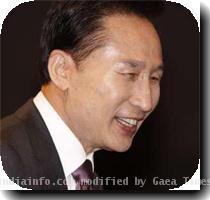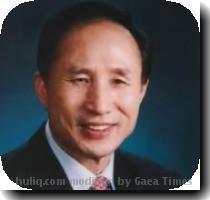NKorea, SKorea exchange fire along west coast; North calls its salvo part of a military drill
By Hyung-jin Kim, APWednesday, January 27, 2010
NKorea, SKorea exchange fire near disputed border
SEOUL, South Korea — North Korea fired artillery and South Korea responded with warning shots along their disputed western sea border Wednesday, but there were no immediate reports of casualties and the North later said its barrage was part of a continuing drill.
North Korea fired about 30 artillery rounds into the sea from its coast and the South immediately responded by firing 100 warning shots from a marine base on an island near the sea border, an officer at the Joint Chiefs of Staff in Seoul said.
He said no casualties or damage were immediately reported, and that the North’s artillery fire landed in its own waters while the South fired into the air. The officer spoke on condition of anonymity because of department policy.
Later Wednesday, North Korea issued a statement saying it had fired artillery off its coast as part of an annual military drill and would continue to do so.
Such drills “will go on in the same waters in the future,” the General Staff of the (North) Korean People’s Army said in a statement carried by the official Korean Central News Agency.
South Korea’s Yonhap news agency reported that the North fired more rounds later Wednesday. South Korean military officials could not immediately confirm the report.
The exchange of fire came two days after the North designated two no-sail zones in the area, including some South Korean-held waters, through March 29.
South Korea’s Defense Ministry sent the North’s military a message expressing serious concern about the firing and saying it fostered “unnecessary tension” between the two sides.
It also urged the North to retract the no-sail zones, calling them a “grave provocation” and a violation of the Korean War armistice.
Top South Korean presidential secretary Chung Chung-kil convened an emergency meeting of security-related officials on behalf of President Lee Myung-bak, who was making a state visit to India, according to the presidential Blue House. It said Lee was informed of the incident.
The western sea border — drawn by the American-led U.N. Command at the end of the 1950-53 Korean War — is a constant source of tension between the two Koreas, with the North insisting the line be moved further south.
Navy ships of the two Koreas fought a brief gunbattle in November that left one North Korean sailor dead and three others wounded. They engaged in similar bloody skirmishes in 1999 and 2002.
Despite the exchange of fire, the capitals of the two Koreas were calm.
North Koreans in Pyongyang wearing thick winter coats walked briskly through the streets while a female police officer directed traffic and a crowded tram passed by, according to footage shot by broadcaster APTN.
The military tension had little effect on South Korean financial markets. Seoul’s benchmark stock index fell less than 1 percent, while the South Korean won rose against the dollar.

